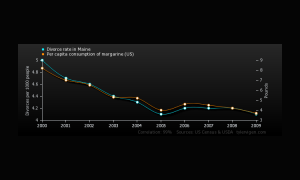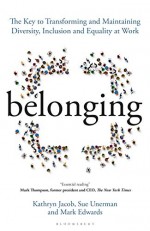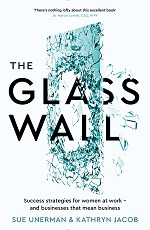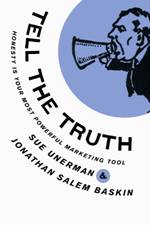“Too long, didn’t read”. Microsoft’s Chief Envisioning Officer Dave Coplin swept into our offices this month to remind us that behind every bit of tech there’s a human being.
He described the symptoms of the Digital Deluge on the average human, one of which is that you can’t manage to concentrate on anything lengthy. It is yet to happen to my emails but apparently TLDR is now the dismissive response you can expect to any email longer than a sentence or two (including your sign off with best wishes).
We’re the first generation that has really had to cope with DD (Digital Deluge) and we aren’t all coping with it very well according to Dave. We don’t concentrate, we skim everything, we can’t put our smartphone away even when with our loved ones, and we’re incapable of effective multi-tasking EVEN if we’re women. (Personally I love to multi-task however this might be because I am not so great at only doing one thing at a time. I believe one bit of activity enriches and enhances another. Dave has research though that proves me wrong so there we go.)
Dave provides a solution to the DD. The systematic use of data. He talks about a paradigm shift from the world of causation to the world of correlation. There will be lots of data, lots of patterns and rather proving causation in it we can rely on patterns of correlation. I agree with a good deal of the spirit of what Dave says. I cannot agree with this.
I’m sure I don’t need to remind you : “Post hoc ergo propter hoc”. The Latin saying which translates as “after this therefore because of this” is a well known fallacy which assumes that since event Y followed event X, event Y must have been caused by event X.
Well quite often it isn’t. There are a number of famous examples of this. One from ancient less digital times is that despite the fact that the cock crows each morning before sunrise, the cock crowing does not cause the sun to rise. From the first decade of this century this graph shows correlation between per capita consumption of mozzarella and the rise in number of civil engineering graduates.
You need rigour as far as interpreting data is concerned, and perspective. And a good algorithm.
There is much to be valued in the Dave Coplin view of the world. He also talked about a “Copernican Shift” which is on its way. At the moment we gravitate around technology. As I sit here blogging I have three phones and two screens. And an impulse to check all of them. Dave speaks of a new era soon to arrive where technology revolves around us instead and will act as our perfect executive assistant, personal coach and valet.
No more TLDR. Technology will read it for us and decide what to do. What could possibly go wrong with that?








#millennials
Thursday, April 30th, 2015The Economist Group on the other hand disagrees and believes that the future is very positive for this segment. Their new research contradicts the stereotypes (lazy, narcissistic, apathetic and only interested in social media) and instead paints a picture of them as “arguably the most sophisticated media generation ever.” Which given that they’re going to dominate the workforce of the UK in just a couple of years is important to address in media and communications thinking.
MediaCom’s own research reinforces the idea that they are different from the generation (Gen X) which preceded them. In fact they seem in some ways to have more in common with the more outrageous of the Baby Boomers in terms of attitudes and openness to change. In many households these two generations now live together (parents who might have confidently expected to empty nest by this point are instead still living with adult children who can’t afford to get on the property ladder). In these “Boomennials” households experiences are shared and the two generations rub off on each other. So for instance usage of second screens by Baby Boomers is above the average because they’re aping the behaviour of the Millennials that they live with.
Of course Millennials are the big users of smart phones and tablets. They are the ones checking their phones before they get up and after they’ve gone to bed. The Economist is correct in suggesting that social media is not their only media channel though it is how they navigate other media. They consume physical, traditional format, media as well as digital media even though they are the first generation which has grown up with both. Introducing the research at Adweek Economist Group’s Global MD of Client Strategy Nick Blunden explained that there’s more influencers in this group than in any other generation and named them “Gen-narrators”. This group have a real potential as effective brand advocates, perhaps the most effective that we have ever seen, both to their peers and the wider consumer public (remember they’re living with Boomers for a start).
We really need to get to them therefore if we expect to influence with a comms strategy. They’re a sophisticated bunch. They are the first generation that fully, instinctively and expertly understand social media. They know how to get their voice heard. Media is properly democratised in their hands. It is the first time ever that a generation’s voice has not been edited or mitigated by a few individuals – the editors of papers and magazines, radio and TV.
The power of this is awesome. We must thank the inventor of the hashtag for their ability to navigate the avalanche of opinion that this power creates. Will we see loyalty to a particular media brand migrate instead to loyalty to a hashtag about which people are passionate?
Posted in MediaComment | No Comments »